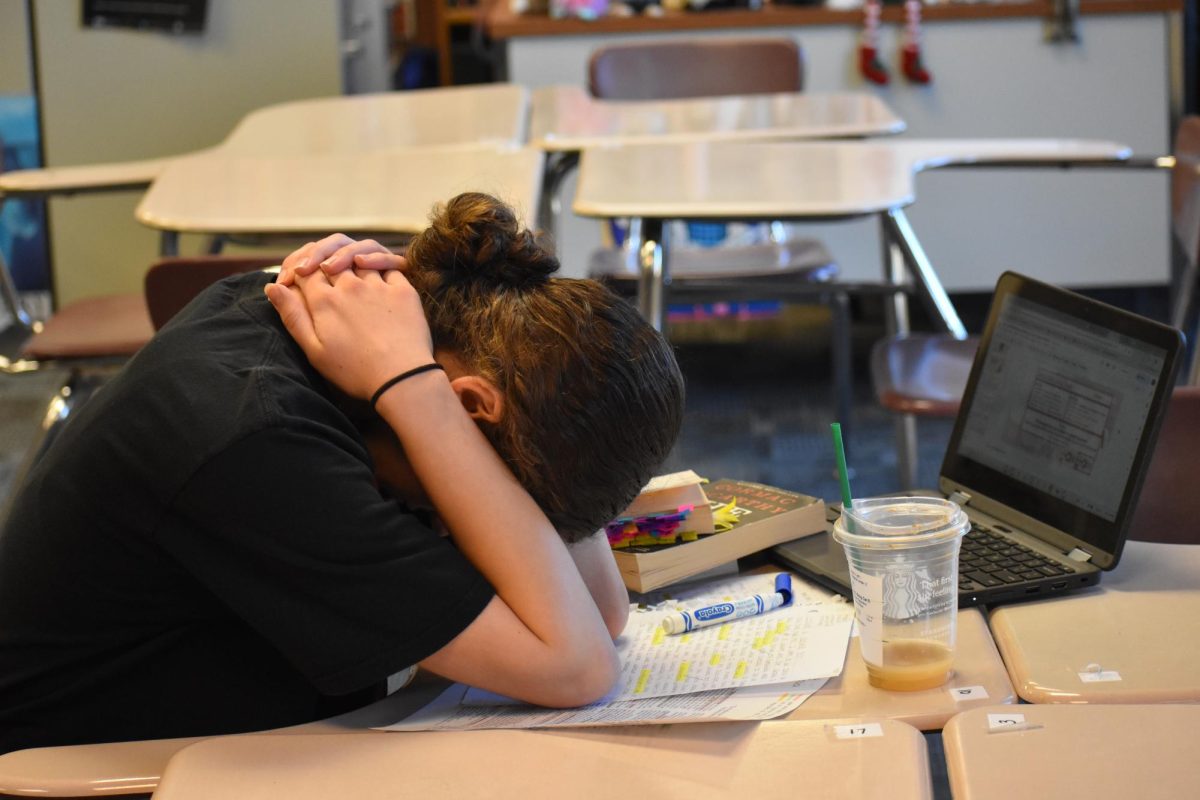It is no surprise that many young adults struggle with mental health. Many students would agree with the claim that they fall into the “perfectionist” or “overachiever” categories, whether that be in school, sports, or other extracurriculars. It is difficult to find a balance between all of these pursuits on a daily basis.
In order to keep up with outside activities in addition to schoolwork, it is necessary to find the perfect symmetry between these two things. However, many students find this especially hard to do, leading them to spiral into previously stated perfectionist and overachiever mentalities.
“I think it’s definitely harder being an athlete and being in hard classes, but I feel like being an athlete has taught me a lot of time management. I’m able to do sports and school because of this ability,” said Callie Garraway, junior.
Alongside extracurriculars that students partake in, many students are at constant war with the amount of work from certain grueling courses, such as AP, honors, and dual enrollment classes.
“AP classes are a lot harder than regular classes. [The amount of stress they have] depends on the person and how motivated they are to do their schoolwork,” Garraway said.
Extracurriculars absorb a lot of energy and time from students, leaving them with unfinished school work and stress, leading to the struggle to balance everything out equally.
“Outside activities can definitely divert your attention. A lot of outside activities can make it so that you have more to focus on at once and because of that it can be difficult to maintain both outside and inside school ones,” said Jackson Benjamin, freshman.
On the other side of this, some athletes may feel as if their outside activities do not affect their schoolwork, however, schoolwork has the potential to affect extracurricular activities.
“I don’t think sports affect my schoolwork because I’ve grown up doing them and I’ve always known it, so I’m used to balancing that alongside school,” said Sami Mondino, freshman.
The amount of stress a student struggles with really depends on the person, affecting everyone’s mentality in a different way. Some students are much more organized than others, which opens up the possibility of a less stressful daily routine, and even lifestyle in general.
“If you’re able to put the right amount of time in and do assignments and practice and use time management, I think it’s doable,” Garraway said.
Another way that students power through their work is remembering the path that they want to take in their lives, what lies in front of them, and thinking ahead to their future.
“I care about my future and I know that education is an important part of that,” Benjamin said.
For many juniors and seniors, this thought process may be a little more predominant and at the forefront of their minds than those of underclassmen, due to college swiftly approaching.
“I strive to get good grades because I want to set myself up for the future and also just graduate with good grades going into college and taking those AP classes to prepare me for college,” Garraway said.
However, for younger students like freshmen who are relatively new to high school, schoolwork can be wearing for them in a whole new way.
“[What makes high school hard compared to middle school is] the longer hours, the stricter grading system, the stricter teachers. More classes, harder classes, longer classes,” Mondio said.
There are also many students on campus who take upper level classes, especially in math. Students step up one grade, and even two, learning at the same pace and level as students in the grades above them. This, too, can just be another burden added on top of a student’s already stressful workload.
“I take Algebra 3-4 because I skipped back in second grade, and then I skipped again in seventh grade. Mostly it was because I’m a relatively fast learner,” Benjamin said.
Students also have lives outside of school and extracurriculars – family, friends, things they like to do for fun – and those can translate into their schoolwork and performance in extracurriculars, as well as vice versa.
“If I’m behind in school, I let it take over and overpower my mind, especially if I’m not having a good day,” Mondino said.
However, while school does affect life outside of it, there are ways to minimize that stress. Solutions may vary for each student.
“A lot of the time it’s trying not to overstress myself because a lot of the time I find myself being stressed about school, and also stressed about soccer, and both at the same time,” Garraway said.
Ultimately, at the end of the day, the only thing a student can do is to put their best work forward and set their priorities straight. This can be hard to do but extremely rewarding in the long run.
“The way I view it is I just want to try my best. I don’t expect to be the best; I just expect to at least try. If I fail, that’s fine, I just want to do the best I can,” Benjamin said.



